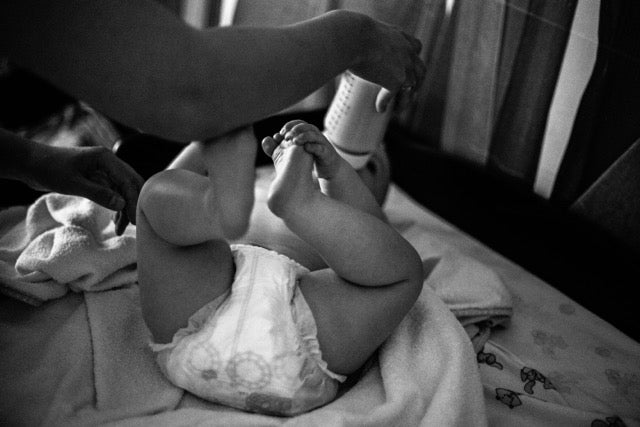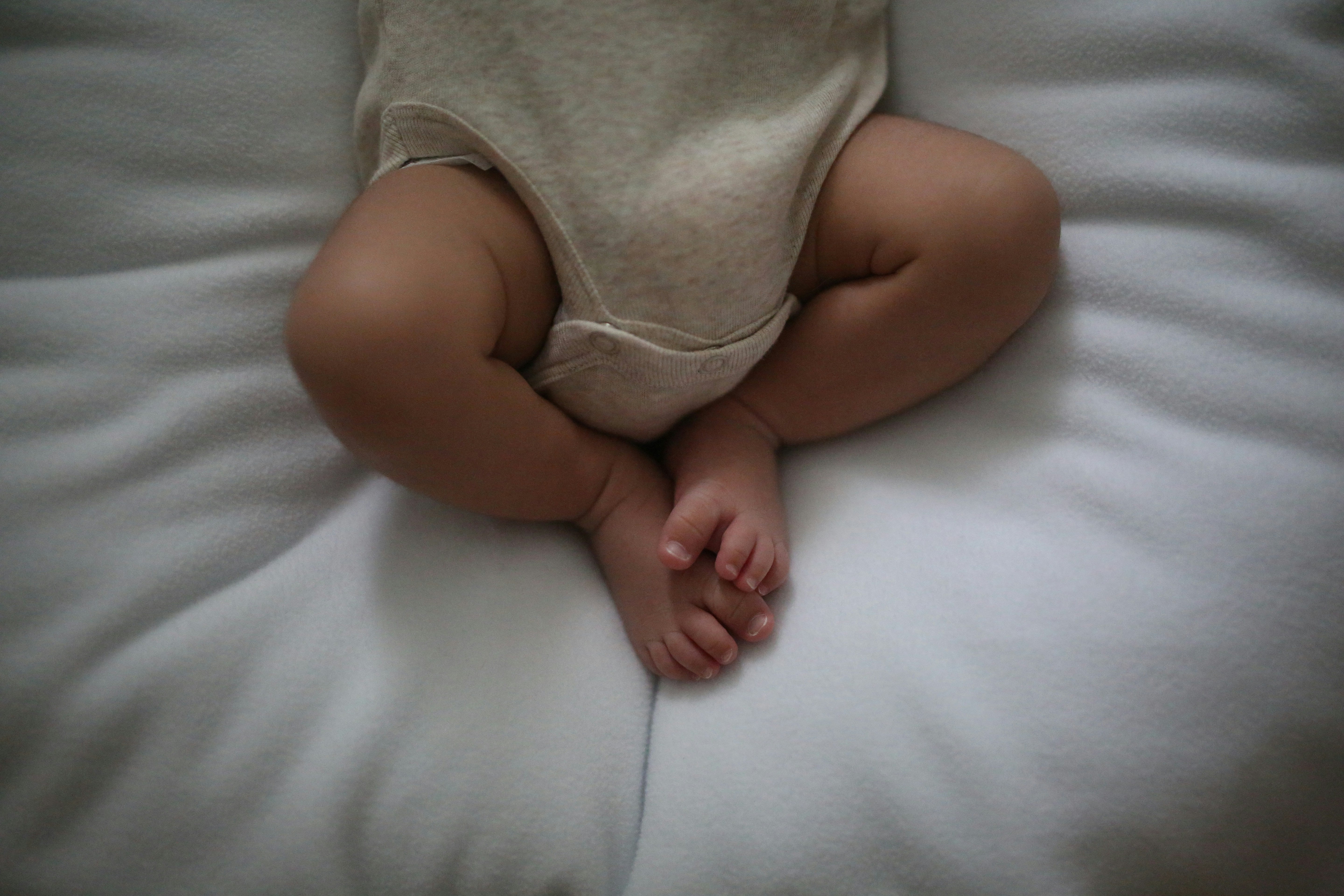
Changing diapers at night – when is it necessary and how can it be done without stress?
Parents know the scenario: The baby is finally sleeping peacefully, but then the question arises: Should I wake them up to change their diaper or let them continue sleeping? Changing diapers at night often causes uncertainty. Is it really necessary, or is it enough to wait until morning? In this blog post, you'll learn when it's a good idea to change your baby's diaper at night, how to do it as gently as possible, and which tips will help everyone (including yourself) continue sleeping peacefully.
Do I really need to change my baby's diaper at night?
The answer is: It depends. Some babies sleep through the night with a full diaper, while others are sensitive to wetness or prone to skin irritation. Here are some factors that determine whether a nighttime diaper change is necessary:
1. The baby's age
- Newborns (0-3 months): In the first few weeks after birth, babies still have very frequent bowel movements—often after every feeding. Since breast milk stools are very runny, diaper changes should be made regularly to prevent skin irritation. Even newborns with sensitive skin benefit from regular diaper changes.
- Older babies (3-6 months): After a few months, bowel movements become less frequent and diapers hold more urine. A high-quality night diaper can often be sufficient to ensure a restful sleep.
- From about 1 year: Many babies now sleep through the night, and as long as the diaper doesn't leak in the morning or the child feels uncomfortable, nighttime diaper changes are often no longer necessary.
2. The type of diaper
Modern nighttime diapers can be highly absorbent and are designed to keep your baby dry for up to 12 hours. If your baby isn't prone to skin irritation and the diaper is still relatively dry in the morning, you can often skip nighttime diaper changes.
3. Skin sensitivity
Babies with sensitive skin or a tendency to diaper rash benefit from more frequent diaper changes, even at night. If your baby is already sore, consider gently changing them at night to protect their skin.
4. Bowel movements at night
If your baby has a bowel movement at night, the diaper should be changed to prevent skin irritation and infection. A diaper full of stool can be particularly stressful on sensitive skin.
How do you change your baby at night without really waking him up?
If a diaper change is unavoidable, there are a few tricks to disturb your baby as little as possible:
1. Use soft lighting
A bright light can wake your baby and disrupt their circadian rhythm. Use a warm, dimmed night light or a small lamp with dim light.
2. Stay calm and quiet
Speak as little as possible and use a gentle touch. Anything that stimulates your baby too much can completely wake them up.
3. Prepare the changing area
Before bedtime, have everything ready: a fresh diaper, wet wipes, diaper rash cream (if needed), and a pad. This way, you don't have to rummage around unnecessarily and can get the change done quickly.
4. Gentle movements
Open the diaper slowly, change it with calm movements, and avoid sudden movements. If your baby remains sleepy, they will often go right back to sleep.
5. No diaper changes “on suspicion”
Many parents automatically change the diaper with every nighttime breastfeeding or feeding. However, if the diaper hasn't leaked or your baby doesn't seem fussy, it can often last until morning.
Tips for a dry night without frequent diaper changes
If you want to reduce nighttime diaper changes, these tips will help:
1. Use a high-quality night diaper
Special nighttime diapers have higher absorbency and often stay dry for up to 12 hours. Try different brands to find out which works best for your baby.
2. Adjust the diaper size
If diapers leak regularly, your baby may need a larger size. Larger diapers have greater absorbency and can absorb urine better.
3. Use wound protection cream preventively
If your baby has sensitive skin, you can apply a thin layer of diaper rash cream. This will protect the skin even if the diaper gets a little damp overnight.
4. Change the last diaper before bedtime
Change the diaper right before bedtime, even if it's not completely wet yet. This way, you'll start the night with the dryest diaper possible.
5. Allow less feeding at night (for older babies)
If your baby is already drinking water or milk from a bottle, it may help to reduce fluid intake slightly in the last few hours before bedtime.
Conclusion: Changing diapers at night – yes or no?
Whether you should change your baby's diaper at night depends on several factors – age, skin sensitivity, and diaper absorbency. While newborns often still need regular diaper changes, older babies can often sleep through the night with a good nighttime diaper. Pay attention to your baby's cues and find a routine that works for both of you. This will make the night more relaxing for everyone!


